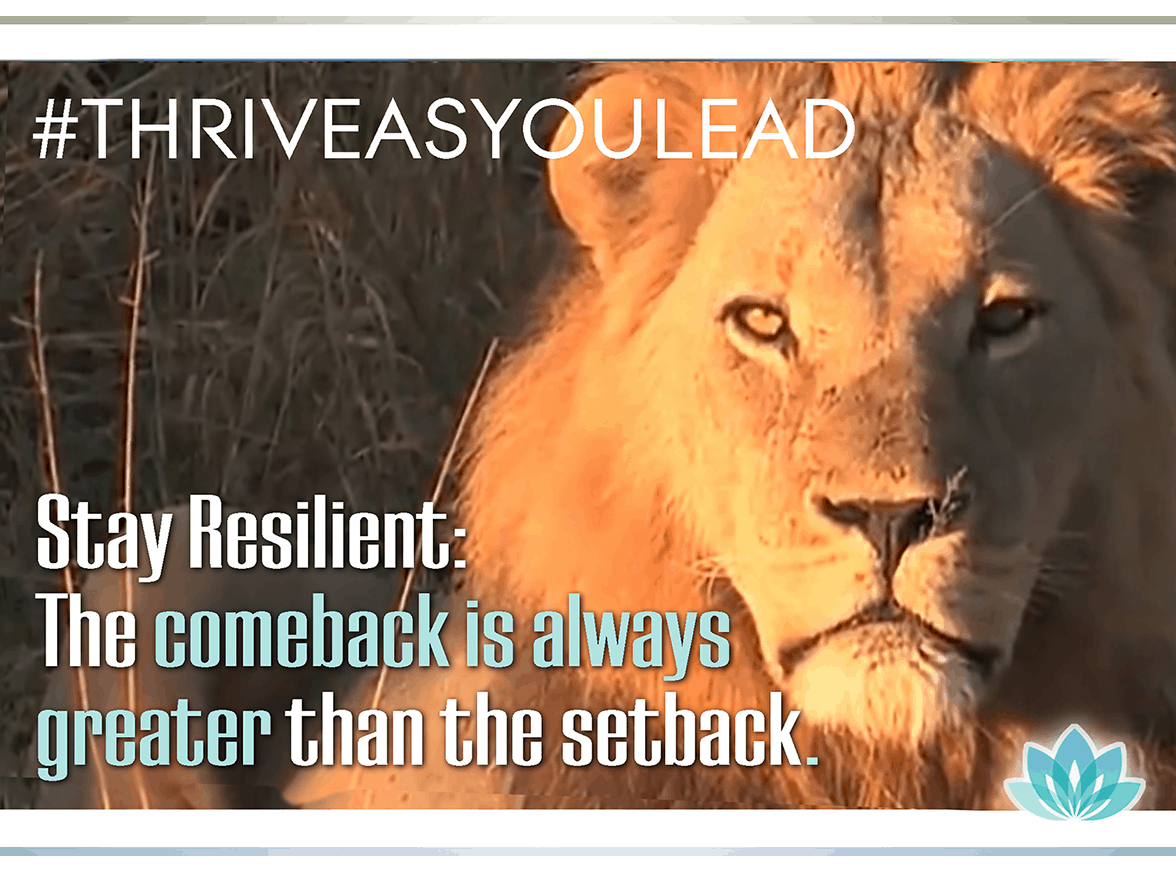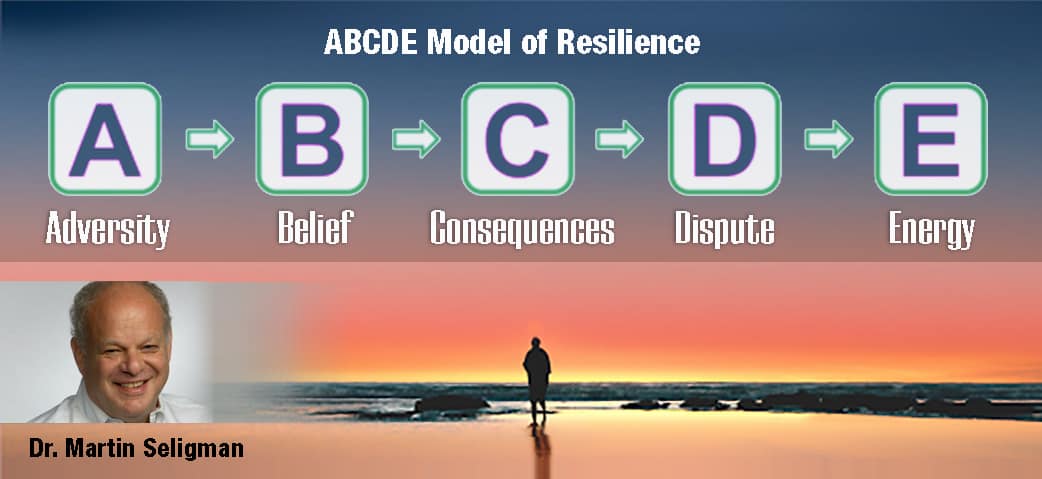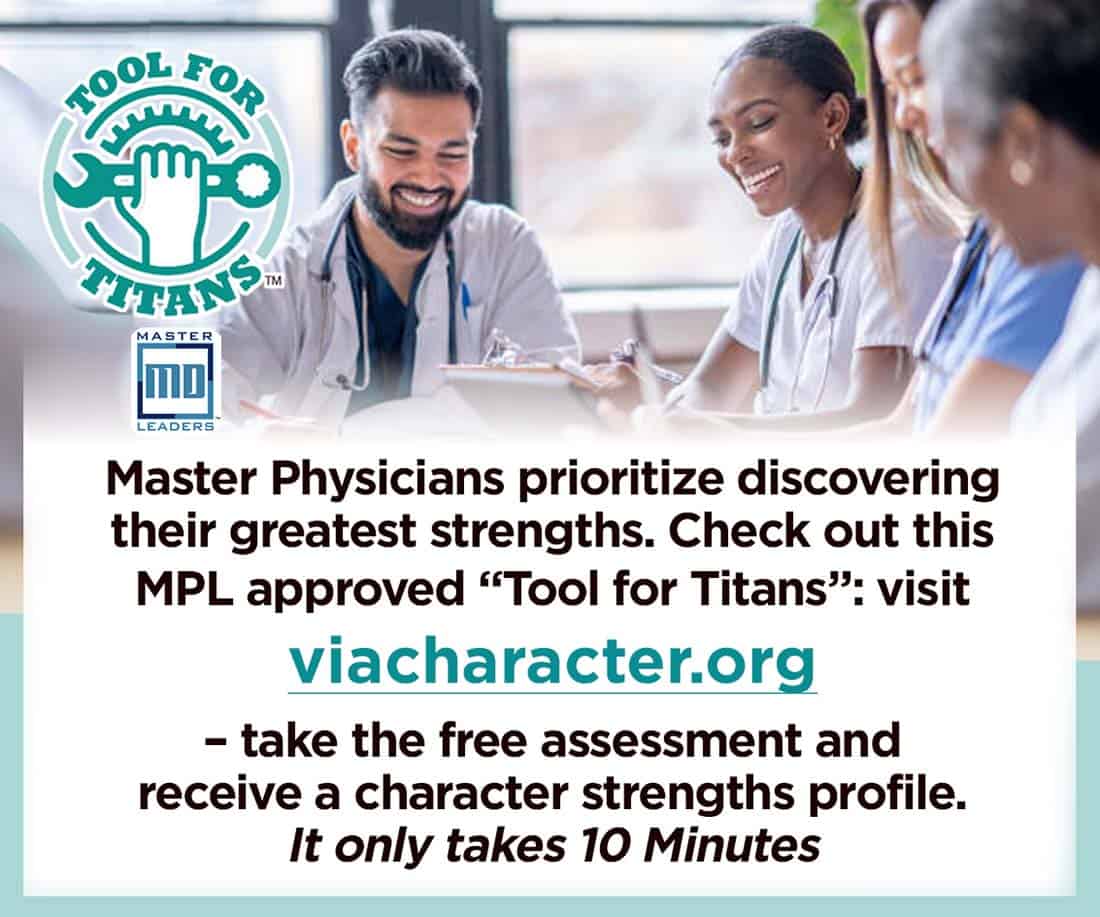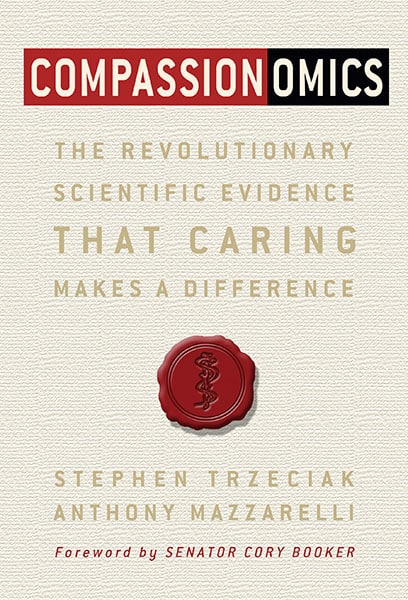The First 90 Days – Sign Up here to begin this free course
The First 90 Days

Consensus about the importance of resilience is a non-issue. It is also indisputable that resilience is a competency that can be learned and cultivated. Where a difference of opinion materializes, is if resilience is a competency that is to be developed in the physician or in the organization? I contend it is both.
Resilience is a vital competency at both the individual and the organizational level. Physicians thrive when they are willing and able to overcome obstacles and bounce back from disappointments with strength. Similarly, organizations that promote and foster a culture of flexibility and adaptability to face inevitable tough times are good for the bottom line. More importantly, it is praiseworthy for the people of the organization to be supported during adverse times because then no one has to go it alone.
So, while I believe the responsibility for cultivating resilience is shared between physicians and the organization, for the sake of this post, I’ll focus on the physician. Considering we are still in the domain of self-management, it makes sense to focus on self. But don’t worry, organizations, I’ll come back to you in a future post.
Resilience is perseverance and diligence in the face of setbacks.
For starters, physicians are quite resilient individuals. We’ve survived more schooling and training than the average working professional to gain positions in our chosen fields. We’ve endured physical, emotional, spiritual, and mental stress and strain that was unpredictable and, at times, seemed unwavering. And yet, we overcame all of these obstacles to get what we wanted. We were and we are built to last.
Knowing that resilience is part of your genetic composition, how do you build greater personal resilience? History tells us we will have to cope in spite of setbacks and disappointments. But history is silent on how to withstand change and prepare for a possible disappointment successfully. What can you do differently to change the behavior or thinking pattern that dwells in the past and can’t move forward?
View setbacks as temporary and disappointments as isolated, short-term, and specific to the circumstance, not as permanent or applicable to all situations.
Resilient individuals see setbacks as temporary and failures as isolated and limited. They reinforce positive patterns of thinking and change negative ones. To become more resilient, it is important to understand your own thoughts, feelings, and behaviors. The more accurate your thinking regarding a disappointing event or situation, the greater your ability to bounce back from adversity. Once we understand how our thoughts, feelings, and actions impact us, we are better able to make positive changes.
Negative “self-talk” hinders a resilient mindset. Raise the volume on constructive inner dialogue and challenge self-criticism by following the ABCDE Model of Resilience when dealing with hard times. Developed by Dr. Martin Seligman, the founder of positive psychology, the ABCDE method disputes limiting beliefs. It replaces them with emotionally healthy self-talk that builds resilience and continued optimism regarding a specific event or situation. Use these steps to engage in constructive dialogue and put hardship into perspective.

A – Adversity: Describe a recent adverse event. Be specific, accurate, and objective in your description (e.g., Include the Who, What, When, and Where).
“The Committee tabled my proposal to restructure physician compensation for the Department.”
B – Belief: Write in your journal what you were saying to yourself amid the adversity. What was running through your mind? What was your belief about the situation?
“I knew Dr. Keller would sway the Committee to get his way. There is always opposition to my proposals or suggestions. Maybe I’m not the right person to lead this Committee.”
C – Consequences: Write in your journal the consequences of your beliefs. List all of the emotions you experienced and as many reactions as you can identify. What did you feel and what did you do? What are the consequences of your beliefs? Do your consequences make sense, given your beliefs?
“I was frustrated for the rest of the day and discouraged the proposal was stonewalled. After the meeting, I was argumentative with my colleagues and even my assistant, who was trying to help me accomplish other important items on my calendar. I kept comparing my failure to other leaders who can gain committee support. I was still in a funk by the time I arrived home.”
“Yes, these feelings and actions make sense given THOSE beliefs.”
D – Dispute: Generate one piece of evidence to point out the inaccuracy of your beliefs, or generate a more accurate/optimistic alternative belief about the situation, or put into perspective your belief.
Use the taglines below to craft your responses:
Evidence: That’s not entirely true because…
“That’s not entirely true because the Committee supported my suggestion to modify the new physician onboarding manual.”
Alternative: A more accurate way of seeing this is…
“The vote was tabled until we meet next month. It’s not like it was blacklisted as a future agenda topic.”
Putting it in Perspective: The most likely thing that will happen…
“The most likely outcome is that selection of a new compensation plan happens next quarter. I can meet 1:1 with Dr. Keller to listen to his concerns and to ask for his suggestions. That will help me calmly address unease from the Committee with a detailed, data-driven response.”
E – Energy: Write in your journal how your disputation changed your energy. What happened to your mood? How did your behavior change? What solutions did you see that you didn’t see before?
“My energy became more optimistic and focused. I felt much more confident in my ability to lead the Committee. My behavior changed by working with Dr. Keller to find a compensation plan that is endorsed by the Department because I want a plan that benefits clinicians at every level. The solutions I saw were about what I could do for the clinicians who are slighted by the existing plan.”
Try the ABCDE model of Resilience to tame your inner gremlin and build a more resilient mindset. Practice makes perfect with this exercise, so use it often.
Tip #5 – Stay resilient: The comeback is always greater than the setback.
Strategy – Put disappointments into perspective with the ABCDE method.
Teresa Dean Malcolm, MD, FACOG, MBA, CPE, CPXP, is zealous in her belief that an exceptional experience in clinical care, the human(e) experience, is achievable through meaningful and authentic relationships with others. She has served in executive positions, integrating people with process and purpose, and successfully aligning the ideas of the team with a compelling vision. Her coaching philosophy, The Malcolm Method, is rooted in trust and supportive accountability. Through thought-provoking conversations, she strives to deepen the awareness of her physician clients and further their actions, thereby helping them to thrive as they lead. Dr. Malcolm (known to her friends and family as Terri) is a loving wife to her husband, Nate. Together they have three charming and athletic boys, Nathaniel, and twins, Roman and Colton.



